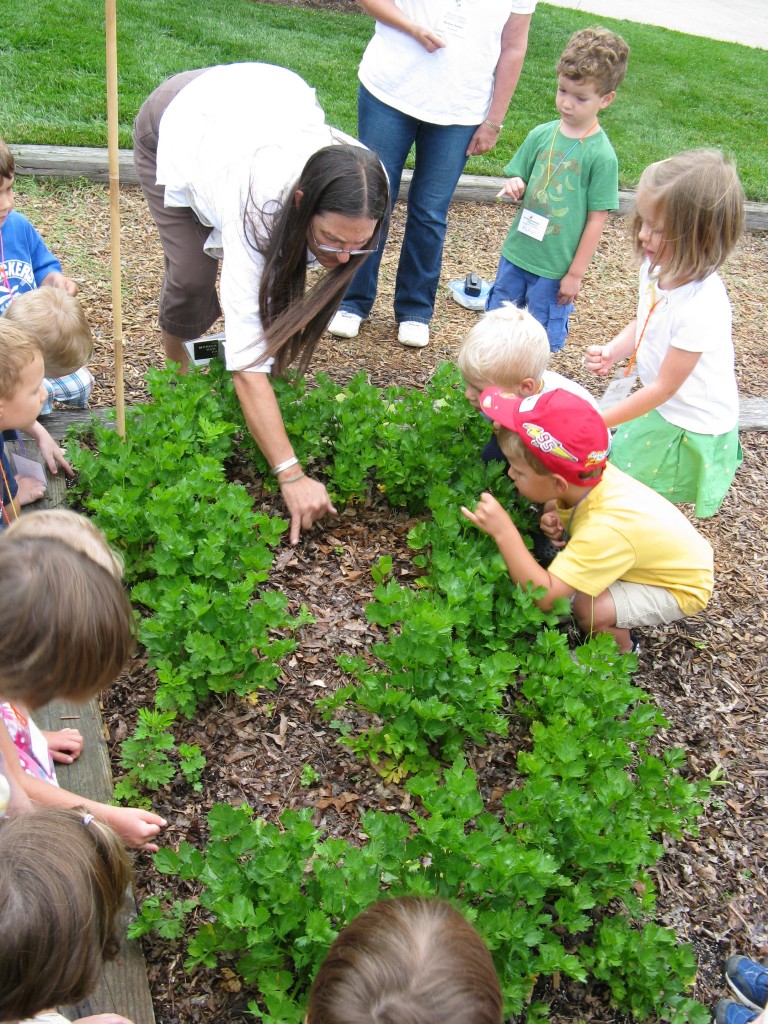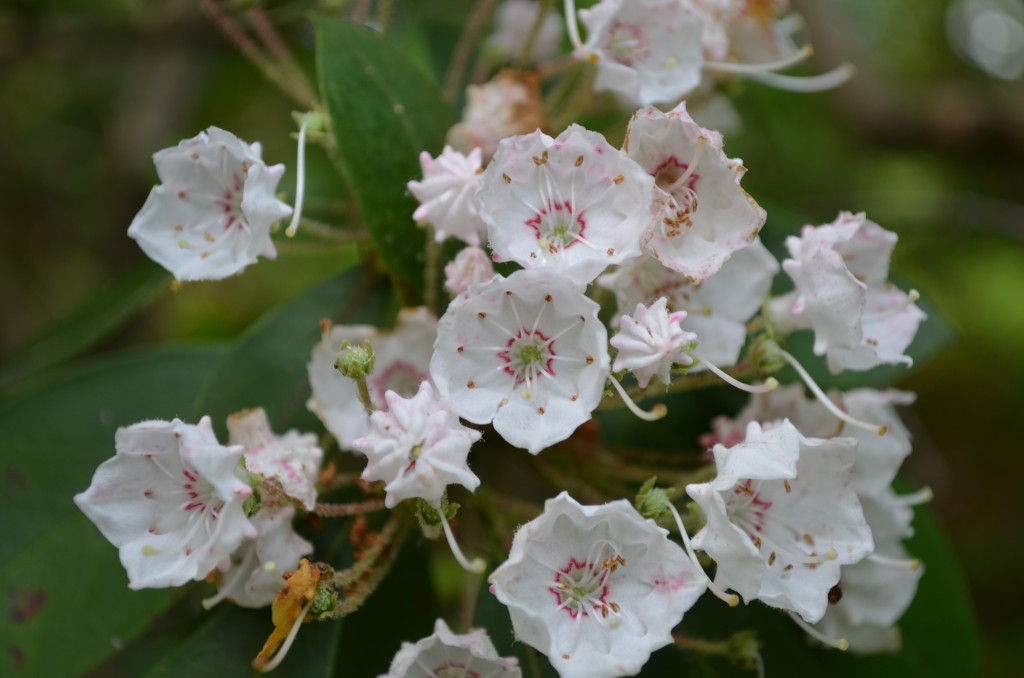Reflections on Allison Kiesler
by Jonah Holland, PR & Marketing Coordinator, Lewis Ginter Botanical Garden
The first time I really got to know Allison Kiesler, I was a parent on a field trip with my child here at Lewis Ginter in the Children’s Garden. Yes, I work here, but until I followed my 5-year-old’s kindergarten class around on a field trip, I didn’t really KNOW Allison. I loved how she kept all the kids in line, not just with her firm raspy voice, but also with her ability to keenly draw in and engage the youngsters learning something really cool about plants.
You knew she had lots of experience as an educator when not only did she immediately know the name of the boy in the class who always needed a little extra attention, but she also had him up in the front helping her. I quickly became a huge fan of Allison, and my fondness grew for her over the years as I got to know her better. She was the first person here at the Garden who wanted me to teach her how to use a flip camera to film and edit video. She was always wanted learn something new, and not afraid of taking risks.
Allison also happens to be the person who most reminded me of my “Nana” Ruby — a woman who wasn’t my grandmother at all, but she loved plants so much that she became my mother’s gardening mentor, and my de facto grandmother because she loved teaching me about them too. The other reason Allison reminded me of my Nana Ruby was her hands. Both of these women were strong, mountain women, who weren’t afraid of hard work. They worked with their hands in the dirt and in turn their fingers looked knobby and tough, like gnarly branches of trees. Allison told me about her days as a mountain girl, growing up in western North Carolina, as she showed me one of her favorite flowers — the mountain laurel. I’m not sure if she loved it more because of its beauty and that it reminded her of her childhood days, or because of the ingenuity of the thing. Mother Nature, she showed me, had designed the perfect trap for pollinators. Spring-loaded anthers on the stamens that released a spray of pollen on any insect nearby who might trigger it. No pollen would be wasted.
Although Allison stopped working at the Garden after her diagnosis, she visited for special events. She came along with Garden staff when we accepted the IMLS National Medal in 2011 at the U.S. Capitol Building. She came for the staff camp out with her son Ben as her escort, and didn’t camp, but enjoyed a staff potluck dinner at dusk in the Children’s Garden, all of us eating fresh figs, stuffed with goat cheese. As Allison got sicker, I tried to keep tabs on her through her daughter Sarah who is a teacher at my children’s school and one-time babysitter for us. But I missed her, so I visited her regularly in her lovely back yard garden as she weeded and told me stories. We have a few other things in common too, and when she saw that I had ridden my motorcycle over on a beautiful spring day, she was jealous — a reaction I hadn’t anticipated! Until then, I never knew that we had motorcycles in common too — and she longed to ride one, for a last time. She told me she wanted to feel her black hair dancing in the wind. She lived near the farmer’s market on Southside, so when local asparagus came into season, it gave me another reason to visit. And as I got to know her, really know her, I learned that I loved her. She made crazy jokes I can’t tell you here, and showed how working on her Japanese mud balls helped her feel centered. She introduced me to her curly-feathered pigeon who couldn’t fly, and told me stories about her life and children that often echoed my own stories.
In the end, I realized that each time I visited with Allison I told myself that it was for her. To keep her company, to make her tea, to listen to her, to bring her food. But what I realized is that instead, each time I visited her in those last months, it was she who gave me a gift. She kept me company. She insisted on making me tea. She gave me a hug when I really needed it. She made me laugh and told me she wasn’t scared to die. And in the end, this very strong woman did let me help her, but only just a little. The last time I visited with her she was having trouble getting around by herself. She grasped on strongly to my arm and I walked her down the stairs and across her small back yard because she really wanted to weed her garden. She found solace and healing in it, and leaving her there I could see she was happy, where she was meant to be, immersed in her plants and in nature.
In the end, I guess we helped each other.
Lewis Ginter Botanical Garden is proud to announce that this week Allison Kiesler was named one of five Outstanding Educators by Project Learning Tree®, the national environmental education program of the American Forest Foundation.


